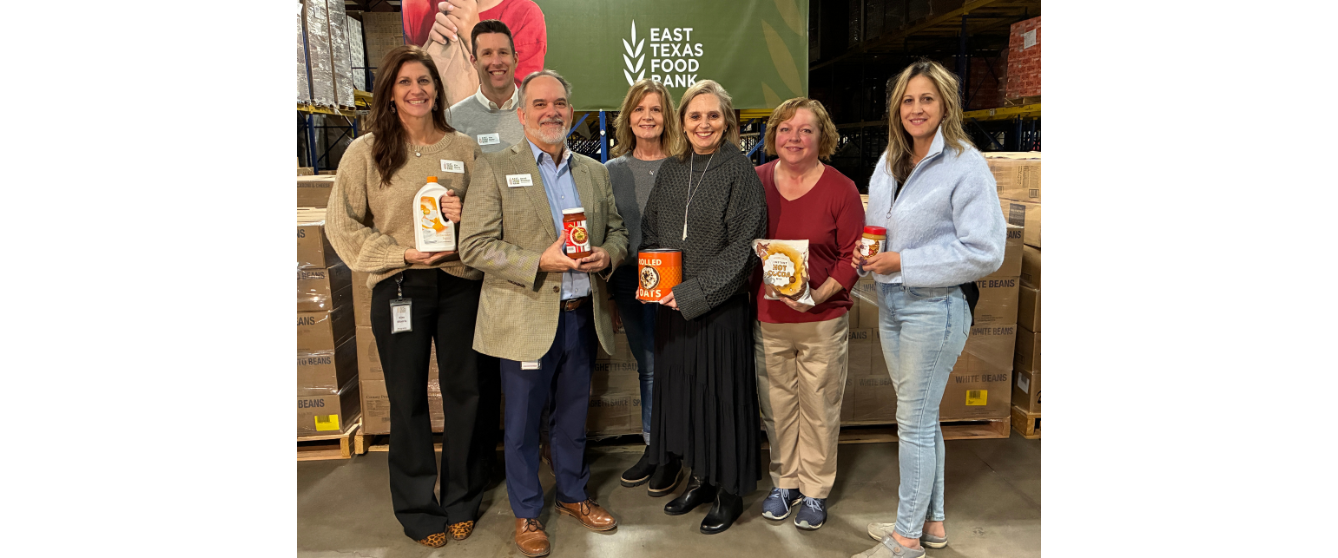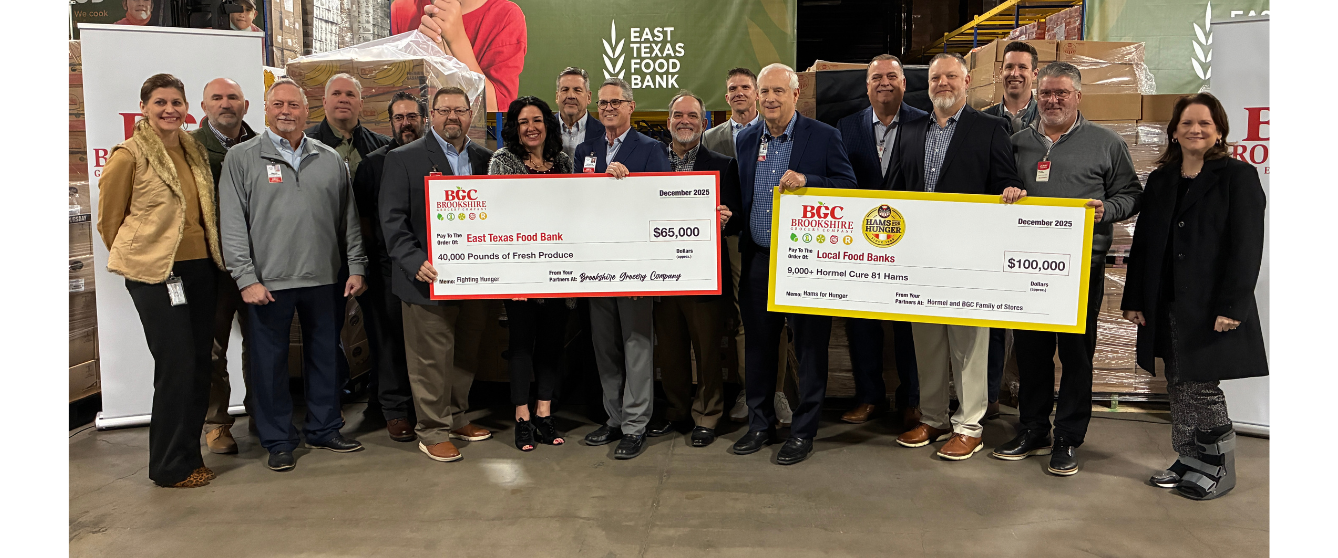East Texas Food Bank receives 42,000 pound food donation from The Church of Jesus Christ of Latter-Day Saints

An 18-wheeler truck from Utah delivered 42,000 pounds of mixed goods to the East Texas Food Bank (ETFB) in Tyler. The donation, totaling 25 pallets, was provided by The Church of Jesus Christ of Latter-day Saints to support hunger relief efforts across East Texas.
The donation from the Church is part of its ongoing global effort to help individuals struggling with urgent temporal concerns by addressing immediate hunger needs, supporting improved nutrition, and promoting long-term food security. The shipment includes a variety of mixed canned and boxed goods such as vegetables, chili, fruit, beef, peanut butter, dried milk, and numerous other items.
“We are deeply grateful for this extraordinary donation of food from The Church of Jesus Christ of Latter-day Saints,” said David Emerson, CEO of the ETFB. “Over the past several years, the church has generously contributed more than 350,000 pounds of food to the ETFB. Their commitment goes far beyond donations—they consistently give their time, energy, and compassion by volunteering at our center and supporting our distributions, making a meaningful difference for the families we serve.”
“When the Savior taught us to feed His sheep, He meant more than words—He meant bread on the table, milk in the cup, and love in the heart,” said Charles Rhodus, president of the Tyler Texas Stake of The Church of Jesus Christ of Latter-day Saints. “We are deeply grateful to share these gifts, knowing that in strengthening our neighbors, we honor Him whose hands never cease to serve.”
The donation comes as local volunteers continue to assist the ETFB through ongoing outreach efforts, including the Community Produce Distribution held last week at the Church’s building located at 2401 N Broadway Ave. in Tyler. During that event, 50 volunteers gathered to bag potatoes and help distribute fresh produce and other food items provided by ETFB.
The Community Produce Distribution at this location is held every third Friday from 10:00 to 11:30 a.m. and is available on a first-come, first-served basis to anyone in the community who is in need. This outreach is especially significant as it is Tyler’s largest distribution helping ensure continued access to fresh produce for residents.
Across 26 counties and nearly 20,000 square miles, the ETFB serves 175,400 households and provides vital support to communities throughout the region. In fiscal year 2025 alone, the ETFB helped provide 34 million meals. Yet the need remains urgent: 235,670 East Texans (including children) face food insecurity, and across the state, 1 in 5 Texans experience hunger, including 1 in 4 children.
This donation is one way the Church continues to support hunger relief efforts already underway in East Texas, building on a relationship that includes regular volunteer service, youth participation, and hands-on community outreach. From packing and distributing food locally to helping meet broader supply needs, Church members are grateful to work alongside the East Texas Food Bank in caring for neighbors across the region.
As part of the Church’s global humanitarian efforts, food and nutrition support remains a consistent focus, especially when it can be delivered through trusted partners with strong local reach. By working with the East Texas Food Bank, the Church can contribute resources that help meet immediate needs while also strengthening long-term food security for individuals and families throughout East Texas.
The Church and the East Texas Food Bank have developed a positive relationship in the community, as adults, missionaries, and youth groups from the Church regularly volunteer.
The Church of Jesus Christ of Latter-day Saints focuses on relieving suffering, fostering self-reliance, and providing opportunities for service for people around the world, regardless of religion, nationality, or race. The Church encourages its members to be generous with their time and resources in any way they can.
